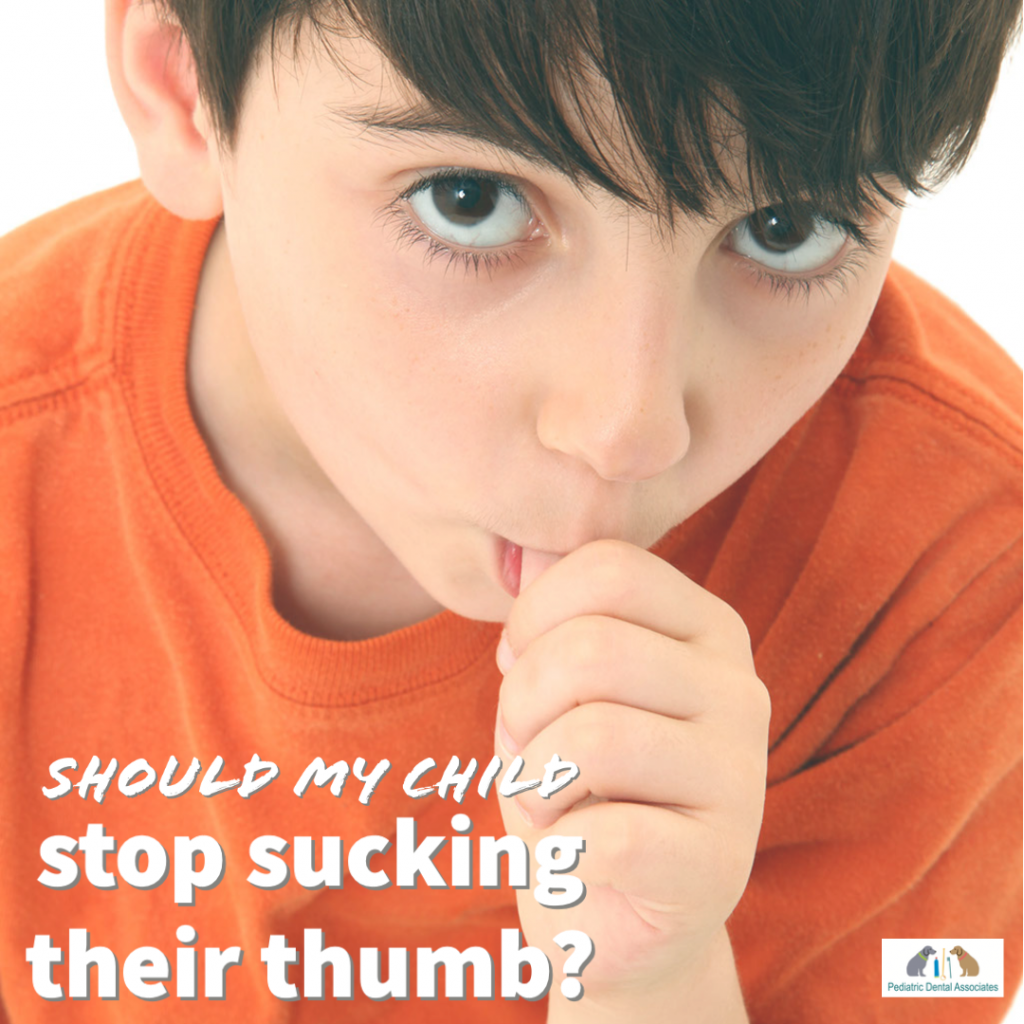Thumb sucking is a habit that can develop even while the baby is still in the womb. It’s a natural soothing mechanism for the child when they are feeling tired or anxious. Thumb sucking in children under four will not typically cause any long-term problems and most children grow out of the habit before then. However, what if your child continues to suck their thumb by the time they reach kindergarten age?
Negative Effects of Thumb Sucking
Children who still suck their thumbs by age five are at risk for developing dental or speech problems. These include:
Malocclusion – this is the misalignment of the teeth when the mouth is closed. Two forms of malocclusion include open bite and overbite. Open bite occurs when the top and bottom front teeth become directed outward. Overbite is a misalignment in which the top teeth cover the bottom teeth when your child’s mouth is closed rather than the top and bottom teeth touching normally.
Skin irritations – moisture can cause the skin on the preferred thumb or finger to crack or bleed, opening your child’s hands up to infection. In addition, the thumb or fingernail can become warped, ingrown, or start peeling.
Speech impediments – thumb sucking affects the development of the teeth, jaw, and palate, particularly after adult teeth begin to come in. This could lead to lisping or other speech disorders which may not get corrected through speech therapy.
Social impacts – while thumb sucking is generally accepted in younger children, it’s a habit that tends to be frowned upon as the child ages. Children who are still sucking their thumb by the time they go to school may face ridicule and humiliation by their peers.
How to Wean Your Child Off Sucking Their Thumb for Good
At first, any habit can be hard to break. Keep in mind that thumb sucking is a coping mechanism for your child. Forcing them to break that habit cold turkey could cause more stress and anxiety. Instead, try a few of these tips and work on breaking the habit gradually.
Try to anticipate situations that cause your child to suck their thumb. Do they use it to help them fall asleep? To ease anxiety when they are in a new situation? If so, try to introduce an alternative, such as a stuffed animal for them to hold on to.
Talk to your child. Little children aspire to be older than they are so start talking to them about being a “big girl” or “big boy.” Use encouraging language to help them realize that big girls and boys don’t suck their thumbs.
Use positive reinforcement. If you notice your child coping with a situation on their own without reverting to their old habit, compliment them on a job well done. Create a rewards system that acknowledges when they’ve done a good job throughout the day.
Ask us for help. Our dentists or hygienists can talk to your child during an appointment about why it’s important to stop sucking their thumbs. Sometimes all it takes is another adult they are comfortable with to give them the extra push to stop.
It’s important to remember that you don’t see a lot of teenage or college aged kids who still suck their thumb. Eventually your child will stop. Continue to be positive and encouraging rather than resorting to negative reinforcements. Being supportive will go a long way towards helping your child break the habit once and for all.
Pediatric Dental Associates of Alabama is led by top-rated pediatric dentists with locations in Birmingham, Cullman, Medplex-Hoover, Oxford and Pell City. When looking for a dentist for kids, know that we aspire to be the premier provider of pediatric dental services in Alabama. Beautiful smiles are our specialty!

